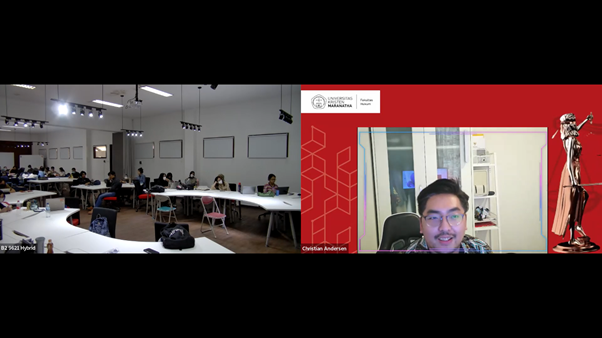A Business Law and Intellectual Property Law expert, Christian Andersen, said intellectual property rights (IPR) play an essential role in the creative industry. IPR can secure ideas and creativity.
According to the lecturer at Maranatha Christian University, as a country with the fourth largest population in the world, Indonesia has high potential in the creative economy. He mentioned that Indonesia is superior in biodiversity and culture.
 Often Indonesian cultural creativity has business potential. For example, sacred ceremonies are also displayed as art performances, which tourists can enjoy. Christian conveyed this on Tuesday (31/10/2022) when presenting as a guest lecture session on the Role of IPR in the Creative Industry towards the ASEAN economic community at the SBM ITB.
Often Indonesian cultural creativity has business potential. For example, sacred ceremonies are also displayed as art performances, which tourists can enjoy. Christian conveyed this on Tuesday (31/10/2022) when presenting as a guest lecture session on the Role of IPR in the Creative Industry towards the ASEAN economic community at the SBM ITB.
The creative industry in Indonesia is one of the largest industries. Its market share reaches 8.7 billion US dollars, 4.5 million workers, and 1.5 million companies. The largest portion is in fashion, crafts, and advertising.
The vast need for creativity commodities makes potential ideas need to be secured. Patents and trade secrets are two options among several forms of IPR. They both protect but are used differently, so it’s important to understand the needs of ideas that must be protected.
For patents, according to Christian, exclusive rights are granted by the state to inventors for their findings in technology at a specific time. Findings are in the form of products, processes, or product or process improvements and developments. Examples are business methods, software, medical engineering, sports engineering, etc. Patent holders have exclusive rights and prohibit others, license, sue for damages, and sue infringers.
Meanwhile, trade secrets are information in technology and business that is unknown to the public. The information has economic value because it is useful in business activities and is kept confidential by the owner. Unlike patents, trade secrets are not registered but can be protected by confidentiality agreements and proof of confidentiality.
So when to use patents, and when to use trade secrets? Patents and trade secrets cannot be selected simultaneously. Registering a patent means that you have to reveal a secret.
According to Christian, this is where the role of legal advisors becomes important; it needs carefulness to choose the proper form of IPR protection. In summary, patents are meant to secure a position before someone else takes the same patent or when it’s too difficult to keep the innovation you want to protect. Meanwhile, Christian recommends securing trade secrets when the invention is easy to be kept secret.




